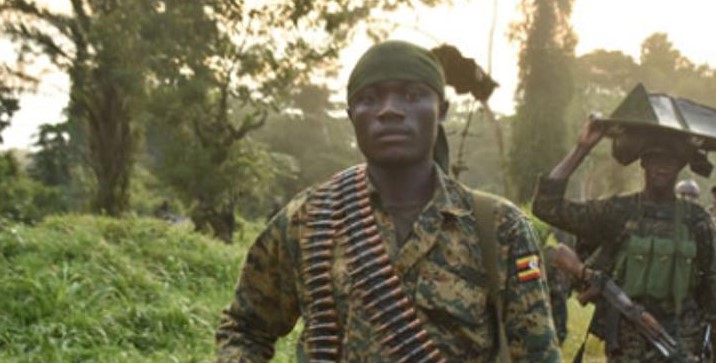Uganda has sent additional troops and tanks to its border with South Sudan following a deadly clash near a shared border that killed several soldiers and displaced thousands of civilians, a South Sudanese chief said on Wednesday, raising fears of further escalation.
The fighting erupted on Monday in South Sudan’s Kajo-Keji County after Ugandan forces accused South Sudanese troops of crossing into Uganda’s West Nile region and refusing to withdraw. South Sudanese officials, however, said Ugandan soldiers launched a surprise attack with tanks and artillery, killing five of their troops.
Ugandan army spokesperson Felix Kulayigye told Reuters that one Ugandan soldier died in the exchange of fire.
“Up to today, there have been more deployments by the UPDF,” said Ernesto Tumiyo, executive chief of Bori Boma, where the incident occurred. “The clashes led to the deaths of five South Sudanese soldiers from the prison, wildlife, and SSPDF units. Women are still searching for their missing children.”
Speaking to Radio Tamazuj, Chief Tumiyo described a chaotic scene on Monday, saying Ugandan forces opened fire indiscriminately, forcing civilians to flee.
“They just came and started shooting with heavy artillery. Civilians began running in panic. To this day, they remain scattered in different places. Some women still cannot find their children,” he said. “Today, those forces are still here—they brought more soldiers and tanks.”
He insisted the contested area, known as Nyainga Muda, belongs to South Sudan and accused Uganda of sabotaging planned peace talks.
“The commissioner and the RDC [Resident District Commissioner] had agreed to meet on Tuesday… to deploy joint forces from both countries to protect civilians from unknown gunmen. But as we waited for the meeting, the UPDF invaded the area on Monday while many civilians were gathered in the center.”
Kajo-Keji County Commissioner Wani Jackson Mule confirmed more deployment of military forces in the area from both sides and called for urgent humanitarian aid, saying thousands—mostly women and children—had fled their homes and were sheltering in schools and churches without food or medicine.
“The area is heavily militarized, and people cannot return home or access their farms,” Mule told Radio Tamazuj. “They need shelter, food, and medical support immediately.”
South Sudan’s military said Tuesday both sides agreed to an immediate ceasefire and would form a joint investigation committee. “We are engaging through the joint technical border committee to find a peaceful resolution,” said SSPDF spokesperson Maj. Gen. Lul Ruai Koang.
But South Sudanese lawmakers and activists accused Uganda of violating its sovereignty.
“This is not the first incursion, but this time it has turned deadly,” said Milla Amos Peter, chairperson of Kajo-Keji’s parliamentary caucus. “We must prevent revenge attacks and push for dialogue.”
Edmund Yakani, executive director of the Community Empowerment for Progress Organization (CEPO), warned against further militarization. “Our border communities should not be treated as war zones. Both governments must prioritize civilians’ safety.”
In March, South Sudan invited Uganda’s army to help bolster security in the capital, Juba, and other areas in the Upper Nile region, following renewed tensions between President Salva Kiir and his rival, First Vice President Riek Machar.
South Sudan and neighboring Uganda are longstanding allies.




